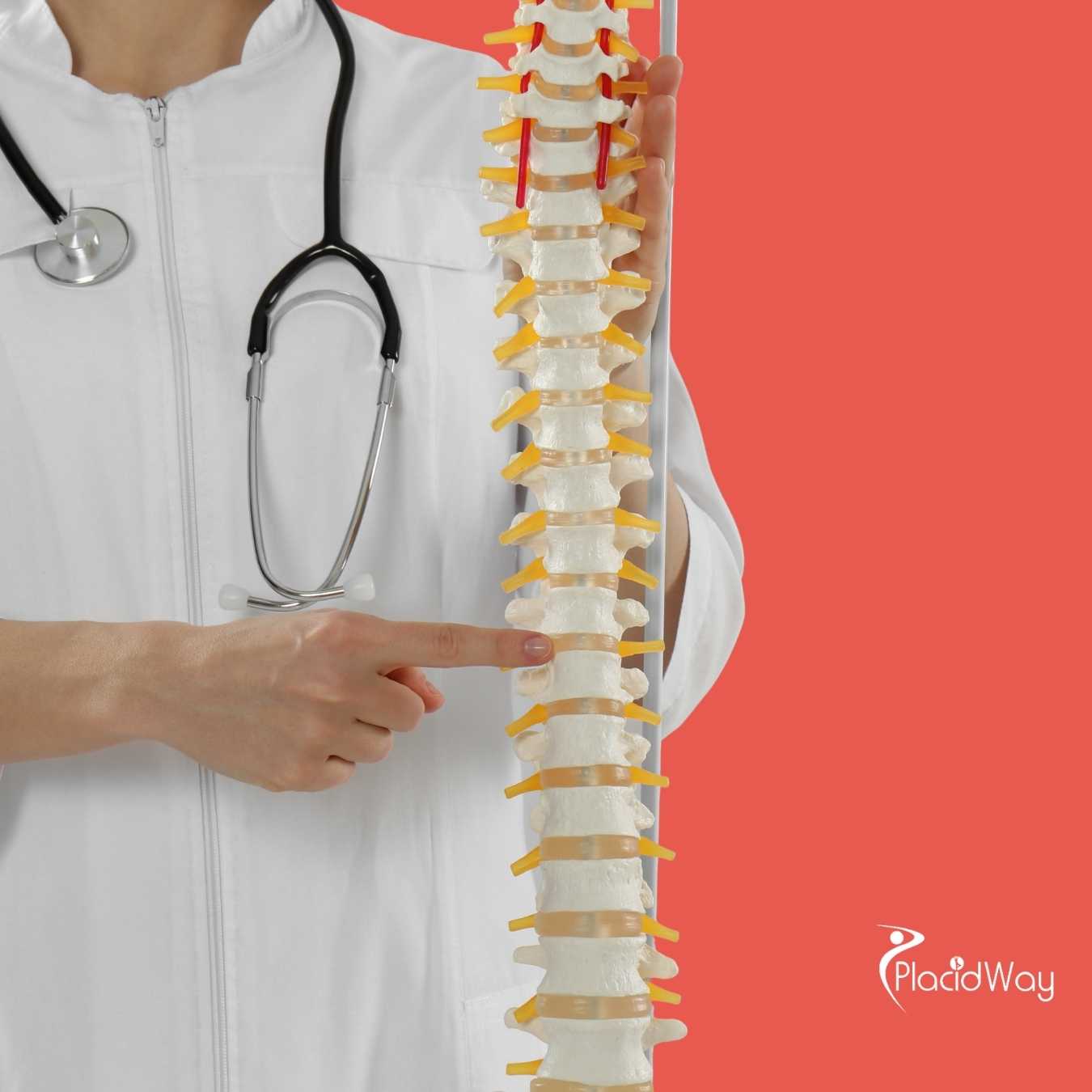Exploring the Power of Stem Cells in Treating Psoriatic Arthritis
.png)
Welcome to our deep dive into one of the most intriguing and rapidly evolving areas of modern medicine: stem cell therapy for psoriatic arthritis. If you or someone you know lives with this challenging condition, you're likely always searching for effective treatments that can offer relief and improve quality of life. Psoriatic arthritis is a chronic autoimmune disease that affects the joints, causing pain, stiffness, and swelling, and can also involve the skin with psoriasis lesions. While current treatments effectively manage symptoms for many, they don't work for everyone, and they don't offer a cure.
This reality drives continuous research into innovative approaches, and stem cell therapy has emerged as a significant area of interest. The idea of using the body's own regenerative capabilities to combat an autoimmune disease like psoriatic arthritis is compelling. But with all the hype and hope, it's crucial to understand what stem cells can realistically do. Are they a miraculous cure, or a promising, yet still experimental, treatment? Let's explore the science, the current state of research, and what this means for individuals seeking new avenues of relief.
Can Stem Cells Cure Psoriatic Arthritis?
While the term "cure" implies a complete and permanent eradication of a disease, current research indicates that stem cell therapy for psoriatic arthritis is not yet a cure. Psoriatic arthritis is a complex autoimmune disease where the immune system mistakenly attacks healthy joint tissue and skin. Stem cells, particularly Mesenchymal Stem Cells (MSCs), are being investigated for their ability to modulate the immune system, reduce inflammation, and promote tissue repair, which could significantly alleviate symptoms and potentially lead to long-term remission rather than a full cure.
The hope lies in the unique properties of stem cells to interact with the body's immune response, effectively calming the overactive immune system that drives psoriatic arthritis. By reducing chronic inflammation and aiding in the regeneration of damaged tissues, stem cell treatments aim to improve joint function, decrease pain, and clear skin lesions. This approach focuses on addressing the root causes of the disease's manifestations, moving beyond just symptom management.
How Do Stem Cells Help Psoriatic Arthritis?
The primary mechanisms by which stem cells, especially Mesenchymal Stem Cells (MSCs), are believed to help psoriatic arthritis are through their powerful immunomodulatory and regenerative capacities. In psoriatic arthritis, an overactive immune system causes chronic inflammation in the joints and skin. MSCs can "talk" to immune cells, influencing them to reduce their inflammatory activity and shift towards a more regulatory and healing state. This process, known as immunomodulation, helps to calm the systemic autoimmune response.
Beyond immunomodulation, MSCs also possess anti-inflammatory properties, secreting various factors that directly suppress inflammatory pathways. They can reduce the production of pro-inflammatory cytokines while increasing anti-inflammatory ones. Furthermore, their regenerative medicine potential means they can contribute to the repair of damaged joint cartilage and other tissues affected by long-term inflammation. By reducing inflammation and promoting repair, stem cell therapy aims to significantly decrease joint pain, stiffness, swelling, and improve the appearance of skin lesions associated with psoriasis.
What Types of Stem Cells Are Used for Psoriatic Arthritis?
For treating psoriatic arthritis, Mesenchymal Stem Cells (MSCs) are the most frequently explored type of stem cells. MSCs are multipotent stromal cells that can differentiate into a variety of cell types, including bone, cartilage, and fat cells, but their greater value in autoimmune diseases like psoriatic arthritis comes from their ability to modulate the immune system and reduce inflammation.
These MSCs can be sourced from several parts of the body:
- Bone Marrow: Traditionally, bone marrow has been a primary source, requiring a minor surgical procedure for extraction.
- Adipose (Fat) Tissue: Fat tissue, obtained through liposuction, is another rich source of MSCs, often preferred due to its abundance and less invasive harvesting procedure.
- Umbilical Cord Blood/Tissue: Perinatal tissues like umbilical cord blood and Wharton's jelly from umbilical cords are increasingly used as they provide a younger, more potent source of MSCs with excellent immunomodulatory capabilities and no ethical concerns for the patient.
These different sources offer various advantages regarding cell yield, potency, and ease of collection, all contributing to the potential effectiveness of stem cell therapy for psoriatic arthritis.
What Are the Current Research Findings on Stem Cells for Psoriatic Arthritis?
The field of stem cell therapy for psoriatic arthritis is dynamic, with ongoing clinical trials and preclinical studies yielding encouraging results. Many studies have focused on the use of Mesenchymal Stem Cells (MSCs), demonstrating their ability to suppress inflammatory responses in animal models of arthritis, leading to reduced joint swelling and tissue damage. These findings lay the groundwork for human trials.
In early-phase human trials, patients with various autoimmune conditions, including some forms of arthritis, have received MSC treatments. While these trials are typically small and designed primarily to assess safety, many have also reported positive outcomes regarding symptom reduction, decreased disease activity scores, and an improved quality of life. Patients often experience reduced joint pain, stiffness, and improvements in skin psoriasis. While these results are promising, it's important to remember that they are preliminary, and further large-scale, placebo-controlled trials are crucial to confirm these benefits and establish standardized treatment protocols.
What Are the Potential Risks and Side Effects of Stem Cell Therapy for Psoriatic Arthritis?
Like any medical intervention, stem cell therapy carries potential risks and side effects, even when performed by experienced professionals. These risks can vary depending on the type of stem cells used, their source, and the method of administration. Common concerns include issues related to the harvesting procedure, especially for bone marrow or adipose tissue, which might involve pain, bruising, or a small risk of infection at the collection site.
When the cells are re-introduced into the body, there's a minor risk of infection or an immune reaction, although MSCs are generally considered immunoprivileged, meaning they are less likely to provoke a strong immune response. Allergic reactions, though rare, can also occur. A more significant, albeit extremely rare, theoretical concern with certain types of pluripotent stem cells is the potential for uncontrolled cell growth or tumor formation; however, this risk is significantly lower with adult MSCs, which are terminally differentiated. Always discuss all potential risks with a qualified physician before considering stem cell therapy for psoriatic arthritis.
Is Stem Cell Therapy for Psoriatic Arthritis FDA Approved?
It is important for individuals considering stem cell therapy for psoriatic arthritis to understand its regulatory status. In the United States, the Food and Drug Administration (FDA) has not approved any stem cell treatments for psoriatic arthritis for general clinical use. The vast majority of stem cell treatments available outside of regulated clinical trials are considered experimental. The FDA requires rigorous testing through clinical trials to prove both the safety and efficacy of new therapies before they can be marketed and widely used.
This lack of approval means that clinics offering unproven stem cell therapies outside of these regulatory frameworks may be operating without sufficient scientific backing, potentially exposing patients to unnecessary risks and unverified benefits. Patients should be cautious of clinics that claim "cures" or offer treatments without participation in legitimate clinical trials. Always verify the regulatory status of any proposed stem cell therapy and ensure that treatments adhere to established medical and ethical guidelines.
What is the Cost of Stem Cell Therapy for Psoriatic Arthritis Abroad?
Many individuals exploring stem cell therapy for psoriatic arthritis consider seeking treatment abroad due to the experimental nature and lack of regulatory approval in their home countries, or simply for more affordable options. The cost can vary significantly based on several factors, including the clinic's reputation, the country (e.g., Mexico, Panama, Germany, Thailand are popular destinations for medical tourism), the specific type of stem cells used (autologous vs. allogeneic), the number of cells administered, and the overall treatment plan, which might include multiple sessions or complementary therapies.
Here's a general overview of typical cost ranges, though these are estimates and can change:
| Country/Region | Estimated Cost Range (USD per treatment cycle) | Notes |
|---|---|---|
| Mexico | $7,000 - $15,000 | Popular for accessibility, many clinics offer various cell types. |
| Panama | $10,000 - $20,000 | Known for specific, often umbilical cord-derived, MSC treatments. |
| Germany | $12,000 - $25,000+ | Strict regulations, high medical standards, often higher price point. |
| Asia (e.g., Thailand) | $8,000 - $18,000 | Growing medical tourism industry, competitive pricing. |
These costs typically cover the procedure itself but may not always include travel, accommodation, or extensive follow-up care. It is essential to get a detailed quote and understand all inclusions before committing to medical tourism for stem cell treatment.
How to Choose a Reputable Clinic for Stem Cell Treatment for Psoriatic Arthritis Overseas?
Choosing a reliable clinic for stem cell therapy abroad is critical for both your safety and the potential effectiveness of the treatment. Given the unregulated nature of some stem cell treatments globally, due diligence is paramount. Here’s a checklist to help you make an informed decision:
- Accreditation and Licensing: Verify if the clinic is accredited by recognized international organizations (e.g., Joint Commission International - JCI) and licensed by local health authorities.
- Medical Staff Qualifications: Ensure that the doctors and specialists administering the treatment are board-certified, have extensive experience with stem cell therapy, and ideally, have expertise in rheumatology or immunology.
- Treatment Protocols: A reputable clinic will have clear, scientifically sound treatment protocols for psoriatic arthritis, including specific cell types, dosages, and administration methods. Ask for peer-reviewed research or clinical trial data supporting their approach.
- Transparency: The clinic should be transparent about the procedure, expected outcomes, potential risks, and the full cost. Avoid clinics that pressure you into quick decisions or promise guaranteed results.
- Patient Testimonials and Reviews: While not the sole factor, genuine patient testimonials and independent reviews can offer insights into patient experiences and clinic reputation. However, always view these critically.
- Ethical Standards: Ensure the clinic adheres to high ethical standards regarding cell sourcing, processing, and patient care.
Be very cautious of any clinic that uses anecdotal evidence as their primary proof of efficacy or discourages you from seeking a second opinion. A truly reputable facility will prioritize patient education and safety above all else, especially when dealing with advanced and experimental treatments like stem cell therapy for psoriatic arthritis.
What is the Recovery Process After Stem Cell Therapy for Psoriatic Arthritis?
The immediate recovery after stem cell therapy for psoriatic arthritis is often quite straightforward, especially if the cells are administered intravenously or via direct injection into affected joints. Patients might experience some mild soreness, bruising, or swelling at the injection site, which usually subsides within a few days. If autologous stem cells were harvested (e.g., from bone marrow or adipose tissue), there might be some discomfort or minor pain at the collection site, but this is also generally manageable with over-the-counter pain relievers.
Most individuals can return to their normal daily activities within a day or two, though strenuous exercise might be advised against for a short period. The more significant aspect of the recovery process involves monitoring the therapeutic effects. Unlike immediate relief, the benefits of stem cell therapy, such as reduced inflammation, decreased joint pain, and improvements in skin symptoms, typically unfold gradually. This can take several weeks or even months as the stem cells work to modulate the immune system and promote healing within the body. Regular follow-ups with the treating physician are essential to track progress and manage expectations.
Are There Alternatives to Stem Cell Therapy for Psoriatic Arthritis?
Absolutely. Before considering experimental treatments like stem cell therapy, it's crucial to be aware of the established and often highly effective treatments for psoriatic arthritis. These conventional therapies are the first line of defense and have undergone extensive testing and regulatory approval. The choice of treatment often depends on the severity of the disease, the specific symptoms, and individual patient factors.
Key alternatives include:
- Nonsteroidal Anti-inflammatory Drugs (NSAIDs): Used for mild symptoms to reduce pain and inflammation.
- Disease-Modifying Antirheumatic Drugs (DMARDs): Such as methotrexate, sulfasalazine, and leflunomide, these medications work to slow the progression of the disease and protect joints from permanent damage.
- Biologics: These are a powerful class of medications that target specific parts of the immune system responsible for inflammation in psoriatic arthritis. Examples include TNF inhibitors (e.g., adalimumab, etanercept), IL-17 inhibitors (e.g., secukinumab, ixekizumab), and IL-12/23 inhibitors (e.g., ustekinumab).
- Targeted Synthetic DMARDs (tsDMARDs): Oral medications like apremilast or tofacitinib that target specific molecules inside immune cells.
- Corticosteroids: Used for short-term relief of severe flares due to potential long-term side effects.
Many patients achieve significant symptom control and a good quality of life with these conventional treatments, which are widely supported by scientific evidence and clinical experience. Discussing these options thoroughly with your rheumatologist is always the recommended first step.
If you or a loved one are exploring advanced treatment options for psoriatic arthritis or other conditions, PlacidWay can connect you with accredited clinics and expert medical professionals worldwide. Explore your possibilities today.


.png)
-Package-in-Kuala-Lumpur,-Malaysia-by-FirstCell.jpg)








Share this listing